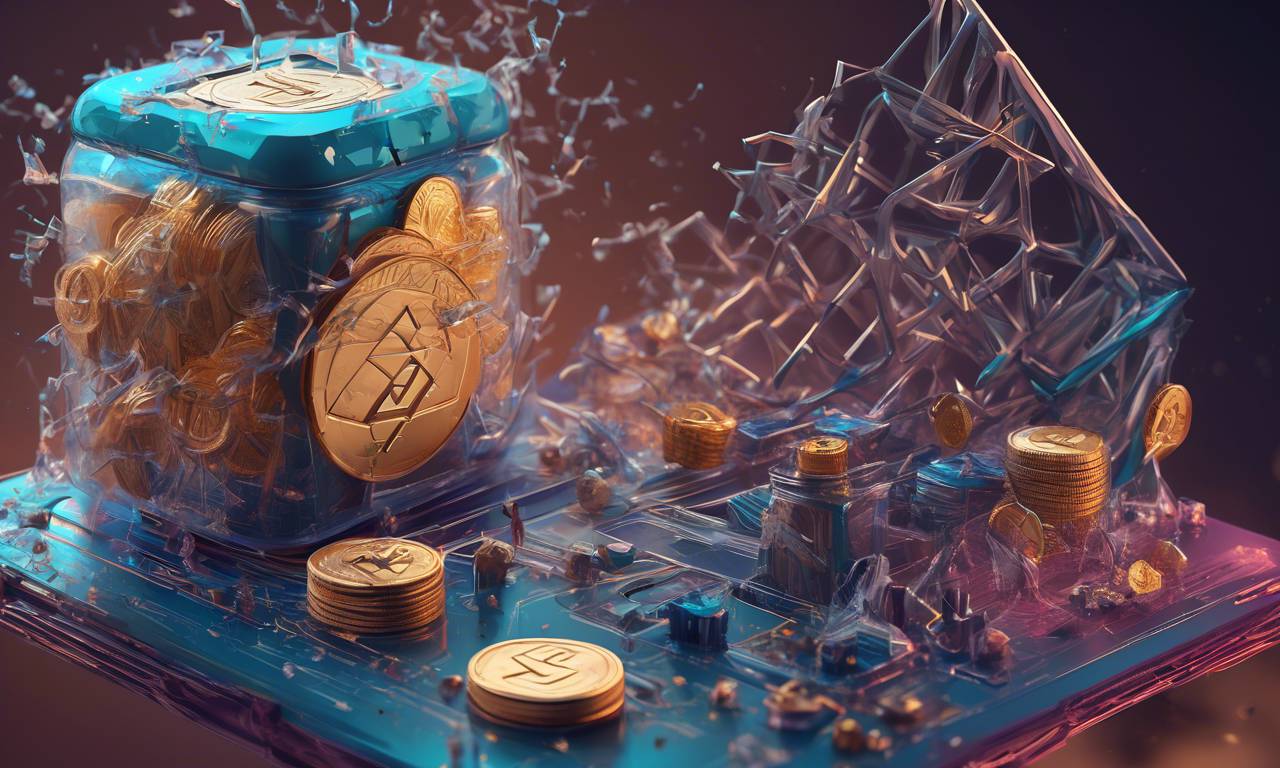The Decline of Ethereum as the Top Hub for Smart Contract Deployments
With most smart contracts no longer deployed on Ethereum, analysts expect the Dencun upgrade to further boost this trend as layer-2 solutions improve.
Ethereum is quickly losing its status as the top hub for deploying smart contracts amid growing competition among layer-2 networks (l2), analysts at Flipside revealed in a recent research report. According to their data, nearly 640 million smart contracts have been deployed since January 2022, with Polygon and BNB Chain (formerly Binance Smart Chain) leading in contract deployments.
Layer-2 Networks Take the Lead
Flipside’s research shows that Ethereum is no longer the primary choice for deploying smart contracts. Instead, layer-2 networks like Polygon and BNB Chain have taken the lead in contract deployments.
- Nearly 640 million smart contracts have been deployed since January 2022.
- Polygon and BNB Chain are leading in contract deployments.
This shift is indicative of the increasing competition among layer-2 networks and their ability to provide more efficient and accessible solutions for deploying smart contracts.
Optimism Dominates EVM Smart Contract Deployments
According to Flipside’s findings, Optimism, a layer-2 solution built on top of Ethereum’s architecture, has accounted for two-thirds of total EVM (Ethereum Virtual Machine) smart contract deployments so far in 2024. This further emphasizes the growing popularity and adoption of layer-2 solutions.
- Optimism has accounted for two-thirds of total EVM smart contract deployments in 2024.
The dominance of Optimism suggests that developers and deployers are increasingly turning to layer-2 solutions for their smart contract needs.
Rise in Contract Deployers
Flipside’s research also highlights a significant increase in the number of contract deployers across various chains. In 2024, contract deployers make up 34.7% of categorizable deployers, marking a substantial rise from 11.2% in both 2022 and 2023.
- Contract deployers have increased to 34.7% in 2024, compared to 11.2% in previous years.
This surge in contract deployers indicates a broader adoption of smart contracts and a growing interest in utilizing blockchain technology for various applications.
Diversification of Contract Deployments
While the number of contract deployers has increased, Flipside notes that it is not just developers who can deploy contracts. “Factories” like UniswapV2Factory allow anyone to create liquidity pools for their tokens permissionlessly, leading to deployments consolidating around these deployers.
- “Factories” like UniswapV2Factory enable anyone to create liquidity pools for their tokens.
This diversification of contract deployments showcases the flexibility and accessibility of decentralized finance (DeFi) platforms and their contribution to the overall growth of the smart contract ecosystem.
NFT Deployments on the Decline
Flipside’s research also highlights a decline in deployers related to non-fungible tokens (NFTs). The percentage of NFT-related deployments decreased from 18.6% to 8.2% over the same period.
- NFT-related deployments have declined from 18.6% to 8.2%.
This shift suggests that the next bull run may prioritize decentralized finance over NFTs, which dominated the previous cycle.
The Future of Ethereum and Competition from Solana
In a research report, Galaxy Digital analysts emphasized that 2024 will be a crucial year for Ethereum as other layer-1 blockchains, particularly Solana, raise the stakes. They anticipate new challenges and technological risks due to Ethereum’s modular architecture and various rollup types still being in their early stages of development.
- Galaxy Digital analysts predict a crucial year for Ethereum in 2024.
- Solana is positioned as the primary competitor against Ethereum.
With its monolithic architecture, Solana is seen as the most distinctive general-purpose blockchain competing directly with Ethereum.
🔥 Hot Take: The Changing Landscape of Smart Contract Deployments 🔥
The decline of Ethereum as the top hub for smart contract deployments is indicative of the increasing competition among layer-2 networks and their ability to provide more efficient and accessible solutions. This shift highlights the growing popularity of layer-2 solutions like Polygon and BNB Chain, which have taken the lead in contract deployments.
Additionally, the rise in contract deployers and the diversification of contract deployments demonstrate the broader adoption of smart contracts and the flexibility of DeFi platforms. However, NFT-related deployments have seen a decline, suggesting a shift in focus towards decentralized finance.
Looking ahead, 2024 will be a crucial year for Ethereum as it faces competition from other layer-1 blockchains like Solana. The modular architecture of Ethereum and its various rollup types present both challenges and opportunities, while Solana emerges as a strong competitor with its monolithic architecture.





 By
By
 By
By

 By
By
